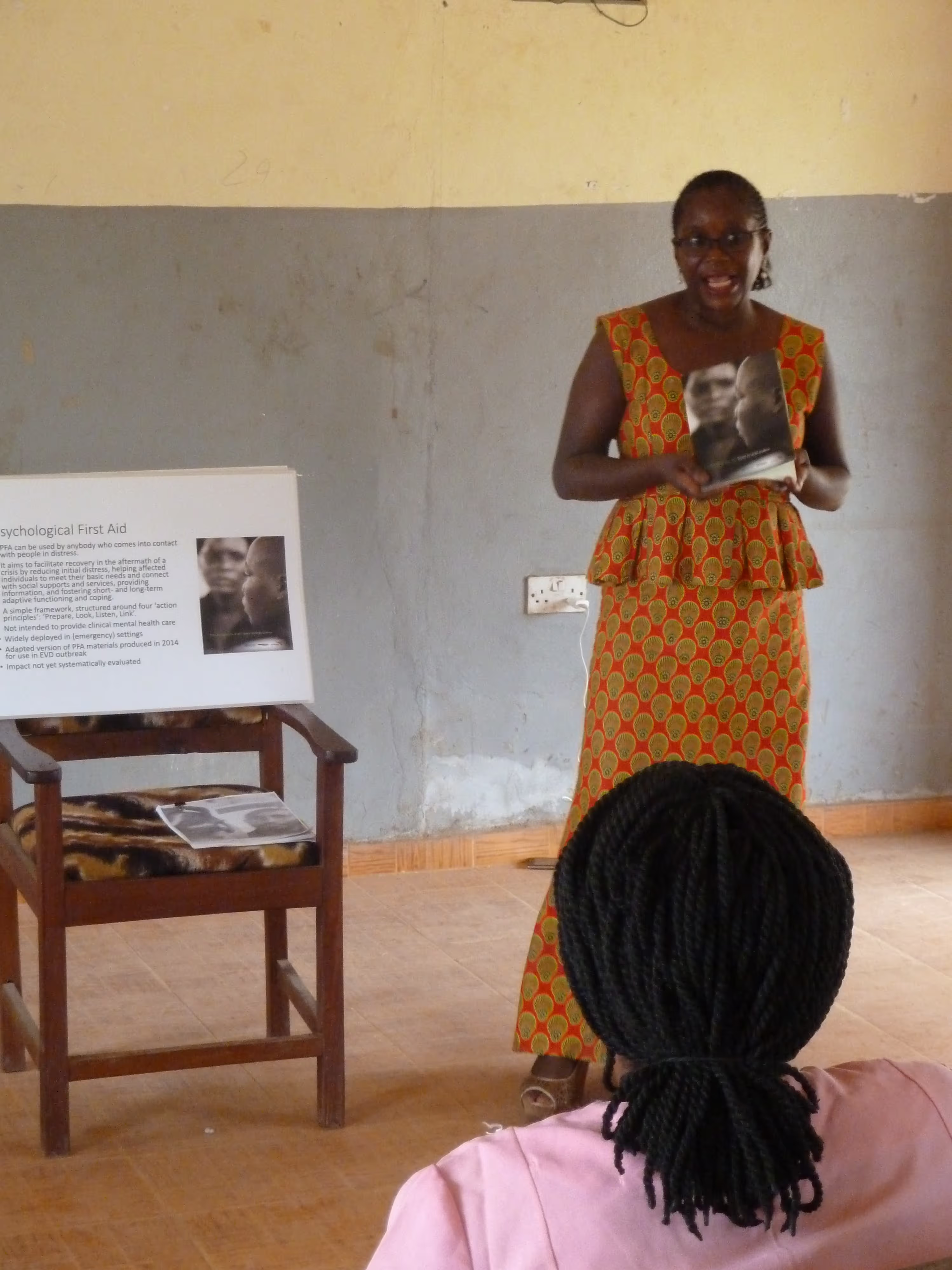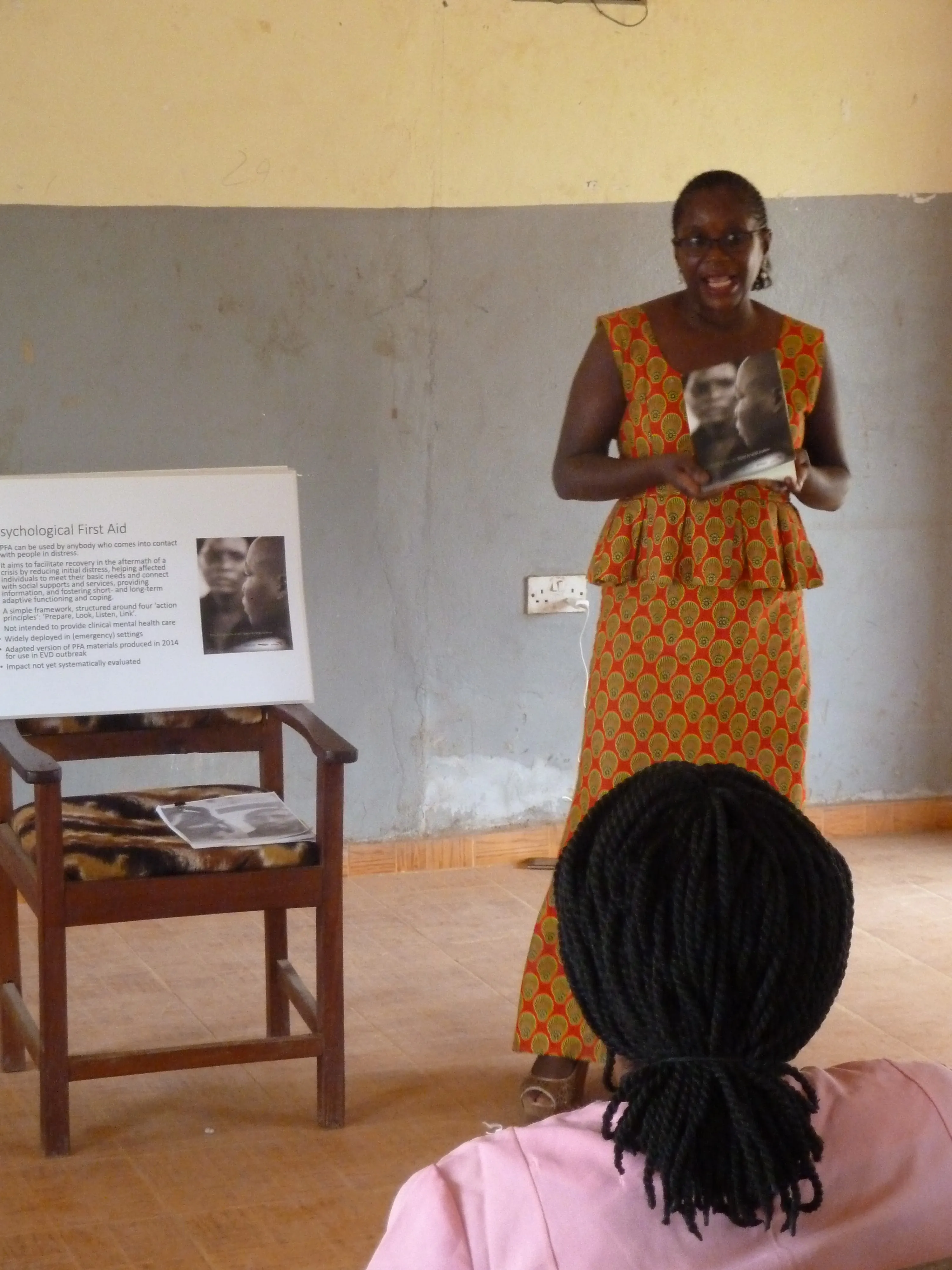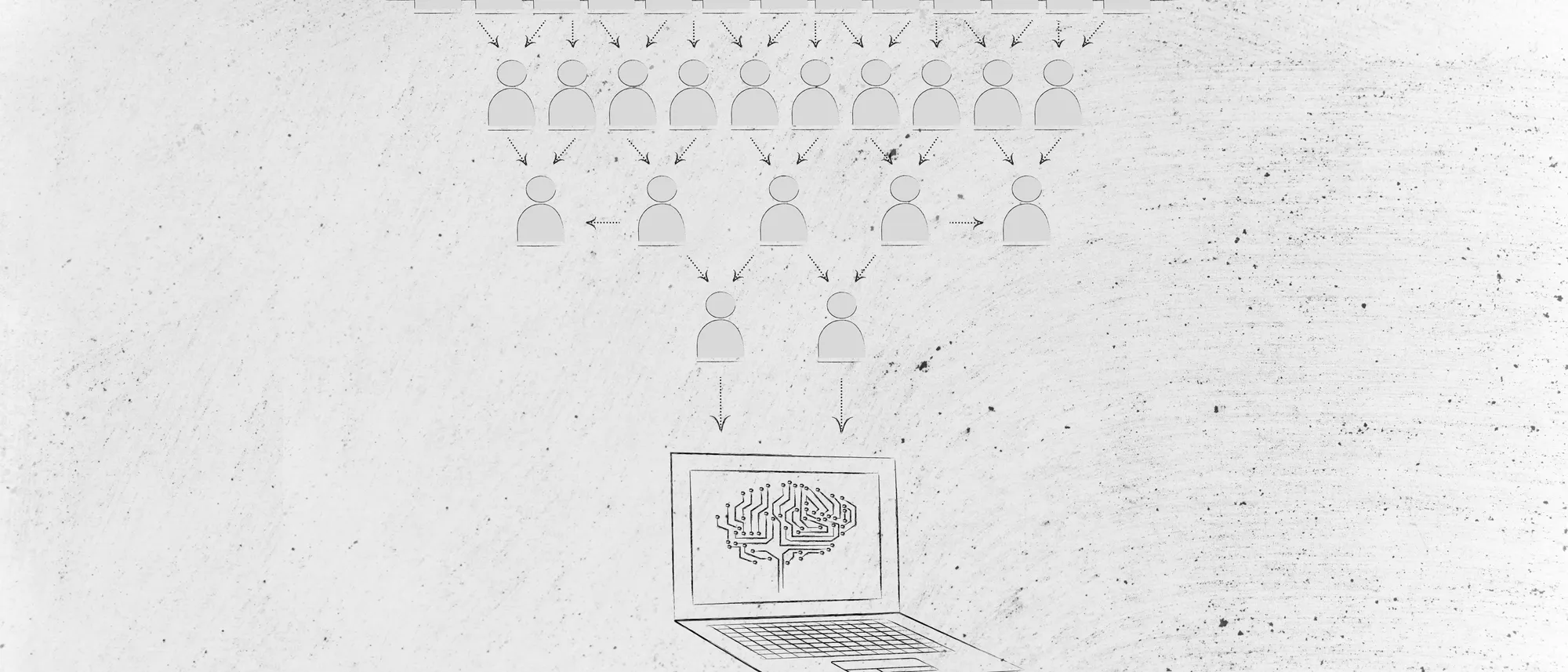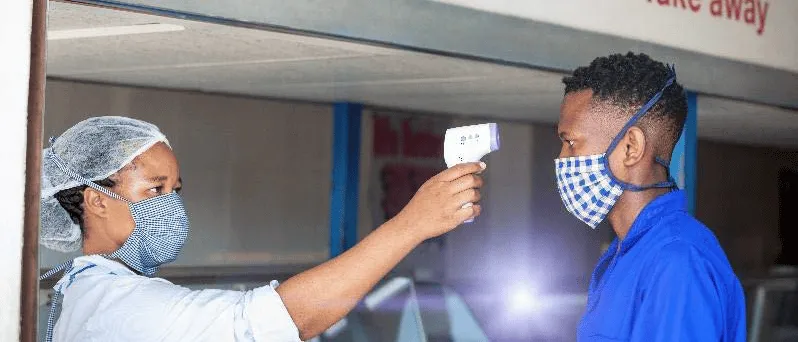Psychological First Aid during the ebola-crisis

Rebecca Esliker is Head of Department for Clinical Counselling at the University of Makeni (UniMak) in Sierra Leone. Native from Sierra Leone, she got her Ph.D in Clinical Psychology in the US.
I count myself very fortunate to be part of the research team that worked on the project: Strengthening Evidence for the Scaling of Psychological First Aid (PFA) in Humanitarian Settings. I got involved with the research project when the consortium partnered with UniMak, and I was asked to lead on the implementation of the project in Sierra Leone.
Before becoming involved in this project I had not used the PFA approach myself. I was first introduced to it when I came to Sierra Leone to work on raising awareness of mental health issues, and could immediately see the relevance of the approach in our context. Now, after being trained as a trainer and in turn training others, I understand the importance and usefulness of PFA in countries where there are few clinicians or mental health personnel.
Rebecca Esliker is Head of Department for Clinical Counselling at the University of Makeni (UniMak) in Sierra Leone. Native from Sierra Leone, she got her Ph.D in Clinical Psychology in the US.
I count myself very fortunate to be part of the research team that worked on the project: Strengthening Evidence for the Scaling of Psychological First Aid (PFA) in Humanitarian Settings. I got involved with the research project when the consortium partnered with UniMak, and I was asked to lead on the implementation of the project in Sierra Leone.
Before becoming involved in this project I had not used the PFA approach myself. I was first introduced to it when I came to Sierra Leone to work on raising awareness of mental health issues, and could immediately see the relevance of the approach in our context. Now, after being trained as a trainer and in turn training others, I understand the importance and usefulness of PFA in countries where there are few clinicians or mental health personnel.

This is my first experience of partnering with colleagues from different institutions on a research project. The experience has been personally enriching, in that I learned to work with a large team of people, both within Sierra Leone and outside, plan and implement complex data collection exercises, run a budget and prepare financial reports. Alongside this, I also overcame a number of challenges, such as getting the necessary ethical approvals and negotiating with District health officials to obtain permission to involve the health care staff in their areas. Our project involved travelling to six Districts in Sierra Leone on several occasions, and the road network during the rainy season was atrocious.
I am now involved in disseminating the results to various stakeholders in Sierra Leone, including the District Medical Officers and representatives of the health care workers who participated in the research. It has been satisfying to be able to present our findings to those who have played such a key role, and to listen to their reflections on the issues we raised. I am now looking forward to working with other members of the team to write up the research for dissemination to a wider audience.
Stay updated
Sign up for our newsletter to receive regular updates on resources, news, and insights like this. Don’t miss out on important information that can help you stay informed and engaged.
Explore Elrha
Learn more about our mission, the organisations we support, and the resources we provide to drive research and innovation in humanitarian response.


